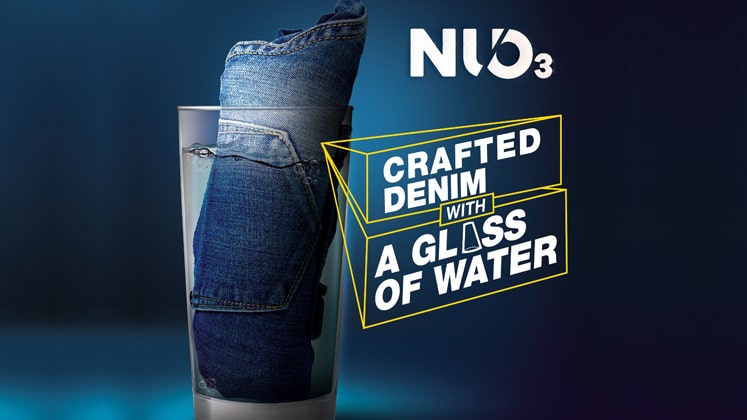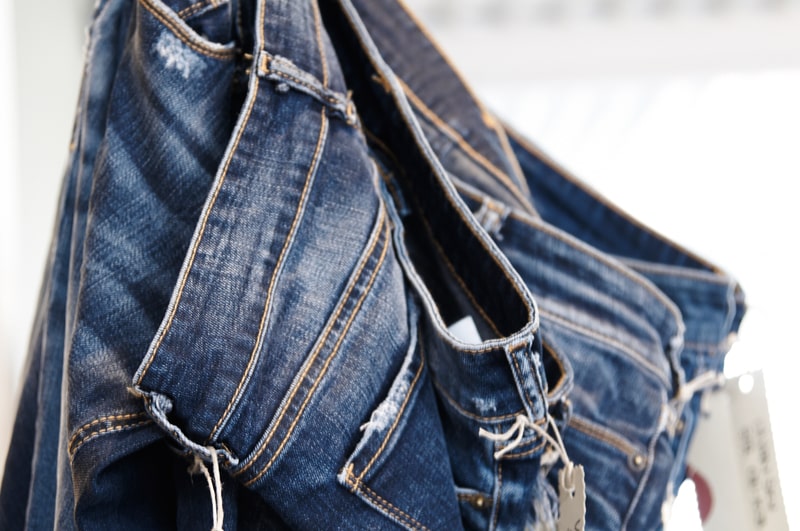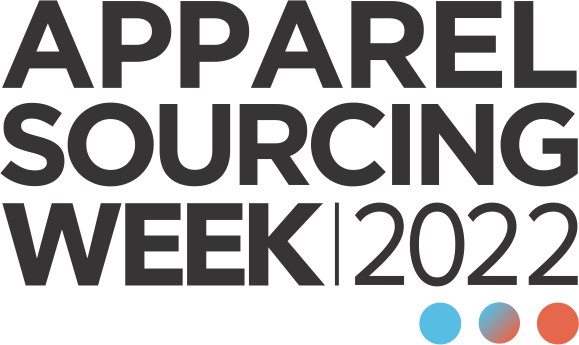News and Features
Denim industry bets big on sustainability
21 February 2019
Apparel Resources

Sustainability is a huge element that has made its road to the global retail industry and now India is following the similar path. While the overall fashion retail industry is going sustainable, denims particularly is catching up phenomenally with its overall segment. India is the fifth-largest destination in the global retail space, making the Indian apparel industry the second-largest contributor in the retail industry. As per Euromonitor report, the global jeans market is valued at US $ 92.9 billion, and one of the fastest growing segments in majority parts of India.
Manjula Gandhi, Chief Product Officer, Numero Uno, asserts, "A good pair of jeans is an important element of a modern day wardrobe, which is fashionable, durable and versatile. For this reason, denim has always reigned as one of the leading apparel segments in the Indian fashion industry. Despite slowdown of domestic market growth as well as apparel exports, the denim market in India has been clocking a consistent CAGR of 15-18 per cent year-on-year. The industry’s future looks promising as well."
While the industry is growing with approximately 6 billion pairs of jeans being sold around the world every year and is foreseeing a flourishing scenario in denim business, the denim brand around the world is facing pressure to change the methods of manufacturing jeans in order to tackle the environmental issues. A large amount of greenhouse gases was released from the manufacturing process of denim, but this was true sometime before. So what exactly changed and what made sustainability a major factor for the denim industry?

Driving the Sustainability Movement
The production of denim can be resource intensive. It uses incredible amounts of water and toxic dyes, while manufacturing one of the world’s most purchased pieces of cloth denim. On an average, it takes about 70 litres of water to make a pair of jeans from the denim fabric, but the times have changed and manufacturers as well as brands are innovating their ways and have reduced their water in-take to make jeans by over 95 per cent. A lot of factors, besides the ethical reasons, are forcing the denim manufacturers to go green.
Kavindra Mishra, Managing Director, Pepe Jeans India, maintains, "Pepe Jeans has long understood the importance of sustainability in its production process, taking its eco-conscious focus seriously as its designs for the future of denim. Innovation and knowledge is at the heart of Pepe Jeans. Its leading denim laboratory always strives towards the best in design, style and operation. Pepe Jeans is not only setting the standard in denim design but in eco-technology. Through this, we aim to let indigo thinking become synonymous with green thinking when it comes to your own wardrobe. We have introduced the sustainable range of denims in our stores pan-India, which further proves our commitment towards sustainable products that will soon be our future."

The factors driving this change include changing values of society -- durability and sustainability becoming increasingly important, especially among young. Besides, customers are paying attention and 93 per cent of global consumers expect their brands to support social and environmental issues and so the retailers and manufacturers are complying. Manjula Gandhi adds: "It is no longer enough for fashion companies to talk about their green ambitions, they have to prove that they are taking actual steps in making their practices greener and ethical. Numero Uno has always been an eco-conscious and responsible brand with emphasis on low water consumption, restricted use of hazardous chemicals and good working conditions for its workforce." The core consumer group for this range is the new age millennial, who are aware and motivated by concerns for their personal well being as well as of global consideration.
The Back-end Processes
Given the growing concerns around sustainability, denim brands have realized that it is not just a trend but progressively becoming a prerequisite to sustain themselves in future.
Samita Singh, Head- Design, Wrangler, apprises, "In Wrangler, we have already started our journey to become one of the leading sustainable denim brands. Besides using sustainable/recyclable materials, we are working on practices like ethical cotton sourcing, which results in giving back a fair amount deserved by farmers. The contribution is small as of now but increasing steadily with each season."
While a number of denim brands are working towards going sustainable, what exactly goes into the entire process? For Pepe, the first stage always includes R&D on the ways of producing eco-friendly denims. The brand’s collection called Wiser Wash involves process that eliminates the use of pumice stones and toxic chemicals involved in traditional washing. "While this takes away the hazard, it still retains the bright contrast and the abrasions that brings about the true depth of indigo colored denims. This entire process is done using less than a cup of water. When creating this collection, our main priority was to ensure that no chemicals are disposed in the environment during the denim washing process. This method also increases the lifespan of the denim as there is less damage to the cotton fibres; thereby preserving the natural state of fabric. Lastly, the garment is free of residue that comes from corrosive chemicals that also gives a better environment to workers," boasts Kavindra Mishra. Meanwhile, Numero Uno involves a combination of multiple processes involving use of laser technology, ozone treatment with minimal water and chemical usage to achieve the desired final output, with no compromise on the design aesthetics of the denims.
Even as the price range of sustainably manufactured denim is comparatively higher compared to the other collections, brands are looking forward to bring in nominal amount of sales and are building up on these collections. The price range of sustainable merchandise by Wrangler starts from Rs 3,000-4,000; for Pepe Jeans it ranges between Rs 4,999-5,999; and the One Glass Water Jeans collection by Numero Uno is priced between Rs 2,699-2,799.
Comments

